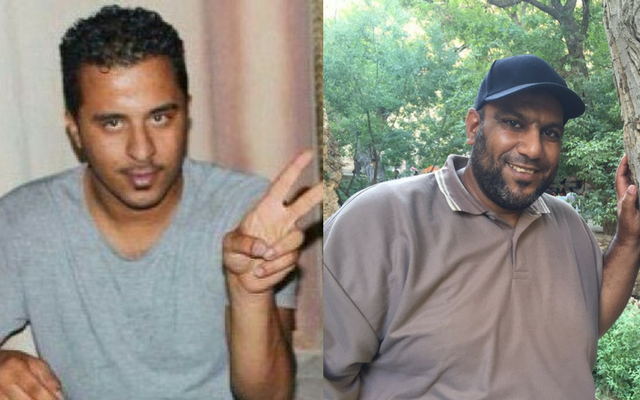
Today, 30 August 2017, Americans for Democracy & Human Rights in Bahrain (ADHRB) observes the International Day of the Victims of Enforced Disappearances established by the United Nations. The practice of enforced disappearances undermines the most basic human rights, including the rights to recognition as a person before the law, to a fair trial and judicial guarantees, and to not be subjected to torture and other cruel, inhuman or degrading treatment or punishment. Enforced disappearances affect the physical and emotional state of the victims, who are often abused and tortured during disappearance, as well as the victim’s friends and family. Cases of enforced disappearances also serves to spread fear and uncertainty throughout the community.
ADHRB and other international NGOs have documented enforced disappearances in Bahrain. Bahraini citizens subjected to enforced disappearance are frequently detained without cause or warrant. They typically disappear into the Criminal Investigations Directorate (CID) for several days or weeks of abuse before reemerging in prison or in courtroom proceedings. The emergence of long-term enforced disappearances in Bahrain marks an extremely alarming escalation of repression, and it is in violation of Bahrain’s commitments to the International Covenant on Civil and Political Rights (ICCPR). Currently, there are two cases of long-term enforced disappearance in Bahrain – Sayed Alawi Hussain al-Alawi and Fadhel Sayed Abbas Hasan Radhi.
On 24 October 2016, armed Bahraini forces in civilian clothing arrested Sayed Alawi from his place of work; they did not present a warrant for arrest. Upon his disappearance, Alawi’s family filed a missing person’s report with the local police. The same night, police contacted Alawi’s family to inform them that he was being held by the CID. However the family was not allowed to speak with him, and the officials gave no information regarding when they could see him. The family subsequently filed a number of complaints throughout the following nine months with the Ministry of Interior’s Office of the Ombudsman, which is charged with investigating claims of abuse. Despite attempted engagement with the Ombudsman and several attempted visits to various detention centers to try to find him, Alawi’s family has been denied information about his location and well-being. Since his disappearance, Alawi has been allowed only four phone calls, during which he is not able to give any detailed information about his situation. During one of the phone calls, authorities abruptly cut the line during conversation. His family has no knowledge of his location, well-being, or reason for detention. International NGOs recently sent a letter to the Bahraini government demanding they immediately disclose information about his case. Alawi has now been disappeared for ten months.
On 29 September 2016, Bahraini forces arrested Fadhel Abbas Radhi from his home in the middle of the night. The detaining forces did not inform Radhi’s family of any charges or where he was being taken. Radhi’s family has made numerous, weekly attempts to get information from the Public Prosecution Office (PPO). During Radhi’s 11-month disappearance, he has reportedly not had access to proper legal counsel. Additionally, he has had minimal communication with his family, during which they report him sounding exhausted. In May, the Bahraini government transferred Radhi’s case to a military court. The Bahraini authorities have not informed Radhi’s family or his lawyer of the charges against him. Radhi’s will be the first case to be heard before a military court since the king ratified a new amendment allowing military courts to try civilians, reversing previous reforms. The trial of civilians by military courts has been prohibited by international law, as such proceedings typically fail to abide by international fair trial standards. Radhi has now been subject to enforced disappearance for 11 months.
“We take time today to honor the untold number of victims and survivors of enforced disappearance around the world,” said Husain Abdulla, ADHRB’s Executive Director. “Bahrain remains plagued by this egregious abuse of state power, as the Ministry of Interior and the secret police of the National Security Agency continue to abduct and torture activists, human rights defenders, and average people with impunity. On this day we reiterate our demand for the Bahraini government to release Sayed Alawi and Fadhel Abbas Radhi, as well as all other victims of arbitrary detention in the kingdom, and we stand in solidarity with all those calling for an end to enforced disappearance across the globe.”
ADHRB remains seriously concerned for the victims of enforced disappearance in Bahrain, including those subjected to long-term enforced disappearance like Sayed Alawi and Fadhel Abbas Radhi. We call on the Government of Bahrain to immediately disclose the location and well-being of the victims to their families and lawyers. They must be granted access to medical professionals for treatment if necessary. Additionally, we urge the Bahraini government to release Alawi and Radhi unless they have been charged with a criminal offense in line with international law, in which case both must have access to regular legal counsel and Radhi’s case must be transferred to a civilian court.




